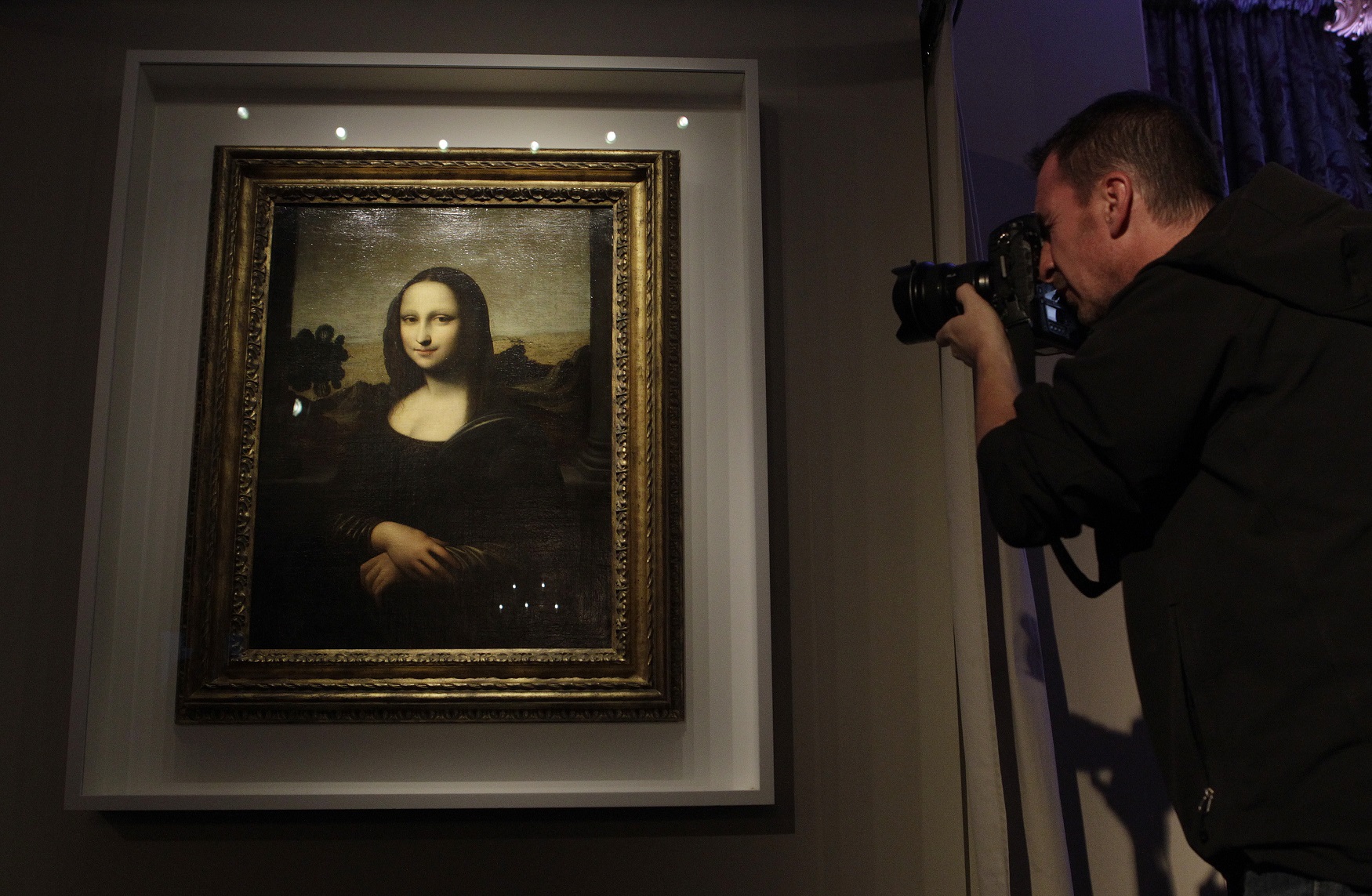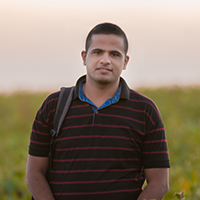كثيراً ما يحتاج الصحفيون لإعداد مادةٍ مكتوبة تسردُ تفاصيل حياة شخصيةٍ ما. ولعل أبرز الأنماط الصحفية التي يمكن أن تستوعب تلك التفاصيل، هو البروفايل الصحفي أو ما يطلق عليه اسم "البورتريه". وهو نمطٌ صحفي يندرج ضمن فن التقرير، يسعى لرسم ملامح شخصية معينة تؤثر في بعض الأحداث، ويتضمن معلومات توضح أهم المحطات والتفاصيل التي قادت الشخصية إلى المكانة التي وصلت إليها.
هذا الجنس الصحافي، الذي ظلّ وجوده نادراً في الصحافة العربية، على مدار السنوات الطويلة السابقة للتطورات التكنولوجية في مجالي الصوت والصورة، أصبح اليوم أداةً مهمة يلجأ إليها الصحفيون الراغبون في تطوير أساليب كتابتهم.
والآلية التي يتم بها إعداد البروفايل تقسّم بشكلٍ أساس على طريقتين: الأولى وهي الأشهر المعتمدة على مقابلةٍ يجريها الصحافي مع الشخصية المستهدفة -سنركز الحديث عليها في هذا التقرير-، والثانية تكون فيها فكرة إجراء المقابلة فيها غير متاحة، كأن يُكتب عن شخصٍ توفي منذ سنوات، لكنّ اسمه عاد للواجهة مجدداً في سياق أحداثٍ جارية، أو مثلًا إعداد مادة تتناول هوية شركةٍ أو علامةٍ تجارية انتهت منذ فترةٍ طويلة، ولم يتبقِ من جيلها العامل أيّ فرد.
سهلٌ ممتنع
تقول الصحفية هديل عطا الله إن أهمية البروفايل "تبرز من توّجه الصحافة الحديثة نحو تعزيز الكتابة النوعية التي تتكثف فيها عناصر المتابعة الدقيقة، وتتضافر مع الخلفية الثقافية والقدرة الإبداعية للكتّاب والصحافيين". وتضيف في سياق شرحها أهمية البورتريه أن "عدداً من الخبراء أكّدوا أنّ هذا النمط يُبرز القدرات ولا يقدر عليه صحافي غير شغوف؛ وحتى المتمرسين قد لا يتقنونه في بعض الأحيان".
وتبرز عطا الله أنّ الصحفيين في البورتريه يبحثون عن شخص ذي قصة مثيرة للاهتمام ليعرضوا جانبًا مختلفًا من خلال التوغل في عالمه عبر أسلوب رشيق يتسم بالصياغة الوصفية المحكمة، مشيرةً إلى أنّ كتابة البروفايل تتطلب مجموعة من المهارات المتوازنة التي تحقق انسجامًا بين حواس الصحافي الخمسة، ليكون قادرًا على استشعار كلّ التفاصيل المحيطة بمادته.
المقابلة هي الخطوة الأهم في عملية إعداد البروفايل حسب الطريقة الأولى وهي من تقود الصحافي لبناء مادته القوية، وفقًا لقول عطا الله، التي تخصصت في إعداد الحوارات الشخصية منذ حوالي عشر سنوات. وتبيّن أنّ كثيرًا من الصحافيين يَقصرون استخدام "البورتريه" على الشخصيات العامة، في حين أنه يمكن الحديث عن أي شخص صنع قصة مثيرة للاهتمام، أو حتى كيانات مثل فرق رياضية أو شركات، مشدّدةً على ضرورة تركيز المقابلة في الجانب الجديد والهام بالنسبة للناس.
وفي ما يتعلق بالأسئلة التي يمكن توجيهها لشخصية موضوع البروفايل، تشرح عطا الله أنّها كثيرة وتتوقف على عفوية المُقابل ونوع قصته ومجال تأثيرها. والسمة التي يجب أن تغلُب عليها، هي القوة المبنية على البحث المسبق الذي يقوم من خلال الاتصال بالأصدقاء القدامى والأقارب، مردفةً "مهما كنت محترفاً أكتب رؤوس أقلام تشير إلى الأسئلة التي تود طرحها، لأنه من دون التدوين قد تنسى السؤال الأهم، وكذلك لابد من وضوح الأسلوب في لغة السؤال".
"يتميز نمط البروفايل عن فن الحديث الصحفي بأسلوب الكتابة أولًا، وبينما قد تتعدد الشخصيات المُقابلة في الحوار، فإن البورتريه يُبنى من خلال مقابلة واحدة رئيسية وأحيانًا بدونها".
البناء الفني
ويتواءم ما ذكرته عطا الله إلى حدٍ كبير مع ما جاء في كتاب "الأجناس الصحفية: مفتاح الإعلام المهني" للأستاذ بالمعهد العالي للإعلام والاتصال بالرباط، عبد الوهاب الرامي، الذي يشير إلى أنّ "البروفايل" يلتقط ثلاثة عناصر أساسية لرسم ملامح الشخصية، أولها الملامح التعريفية، وهي كلّ ما يتصل بالمعلومات الروتينية ذات العلاقة بالعمر والتعليم والسكن والسمات البيولوجية وغيرها، ويركز أيضًا على الأبعاد النفسية التي تُستنج من خلال رصد سلوك الشخصية والأنشطة المتعلقة بها ومحيطها المجتمعي، وكذلك يتناول الملامح الفكرية المرتبطة بالطموح والمشاريع والانتماء السياسي.
ويفرّق الرامي بين السيرة الحياتية والبروفايل من خلال الإشارة إلى أنّ الأولى تقدم مسار حياة كامل لشخصية ما ومحطاتها دون الربط بين تفاصيلها، وتعتمد بشكلٍ أساسي على تقديم المعلومات والحقائق الجافة في قالبٍ مهني علمي، بينما الأخير يعتمد على رسمٍ وصفي لملامح الشخصية، ويركز على الانتقائية في اختيار مسارات حياتها وتحليل أثرها عليها، إضافة لكونه يشيع إحساسًا حيويًا مليئاً بالألوان.
"الصحافي الماهر هو الذي يجيد استثمار مهاراته في العلاقات العامّة" تقول عطا الله، وذلك ببناء أساسِ جيد لأي مقابلةٍ صحفية، وفي البروفايل تحديدًا تنمو أهمية ذلك الأمر؛ لأنّ الشخصية غالبًا تكون مرموقة وصاحبة إنجاز"، وبالتالي علينا في البداية أنّ نطرح الأسئلة التي تشجع الشخص للحديث عن نفسه، ثمّ بعد ذلك الأمر يتطور طبيعيًا، مع مراعاة ضرورة الإبقاء على المحاور الأساسية وإتاحة هامش للحديث في أمور أخرى قد لا تكون معلومة مسبقًا لدى كاتب البروفايل".
يرتكز البناء الفني للبروفايل على السرد بشكلٍ أساسي، كما ترى الصحافية التي أصدرت مؤخرًا مؤلفًا بعنوان "حوارات في الفكر والحياة" جمعت فيه عشرات الأحاديث/الحوارات الصحفية أعدّتها خلال السنوات الماضية، -يرتكز- على الاستعانة بالاقتباسات مع مراعاة الدقة في نقلها، حسب طبيعة ونوعية الشخصية.
"أثناء تقديم معلومات البروفايل، لا بد أن تظهر قدرة الصحافي على التقاط مشاعر الشخصية ومزاجها، وأن يصف التفاصيل دون أن يعطي آراءه الخاصة في مادته؛ بمعنى أنه يجب أن يعرض المعلومة أو المشهد بشكل محترف ويترك القارئ ليشعر بالمجريات ليبني تصوره الخاص" ثم تستطرد: "مهمتك كصحافي هي فقط رسم صورة تلك الشخصية وتقديمها للجمهور، الذي يتولى الحكم على جودتها وصدقها".
وهنا تتقاطع عطا الله مع الرامي، الذي يرى أن الطريقة الأنسب لتحرير البروفايل تعتمد على قانون التعاقب بشكلٍ سريع، أي الممازجة بين أنماط الكتابة المختلفة لكسر رتابة السرد، لافتًا إلى أنّ الأسلوب يَعمد إلى تعاقب الصور والأفكار والوصف والسرد والأسلوب المباشر وغير المباشر وغيرها من عناصر الكتابة التي تجعله شبيهًا بتقنيات التقطيع في السينما، شارحًا أنّ اختيار عنوانًا للبروفايل، يتم بالاعتماد على نمطٍ يُعطي ملمحًا بارزًا للشخصية، مثل أن نختار عنوان "بورتريه" يتحدث عن الفنانة العربية فاتن حمامة فنقول: "الفاتنة حمامة".
وتقيّم الصحافية عطا الله واقع البروفايل في الإعلام العربي المقروء، بقولها إنّه ما زال مقصرًا في استخدام هذا النمط الصحفي على الرغم من أهميته لاسيما في ظلّ "تبّدل الحالة المعيشة بين الوقت والآخر وظهور شخصيات جديدة على الساحات السياسية والاجتماعية وغيرهما" موضحة أن "المادة الصحفية العادية سهلة وتكتب مباشرة دون التطرق لزوايا عميقة، أمّا البروفايل فإنه يُوضع على نار هادئة إلى أن تنضج الفكرة بشكلٍ لائق قد لا يُنسى. هذا النمط يصقل المواهب ويميزها والجهد فيه رابح لأن ثماره حقاً لا تحصى".








































